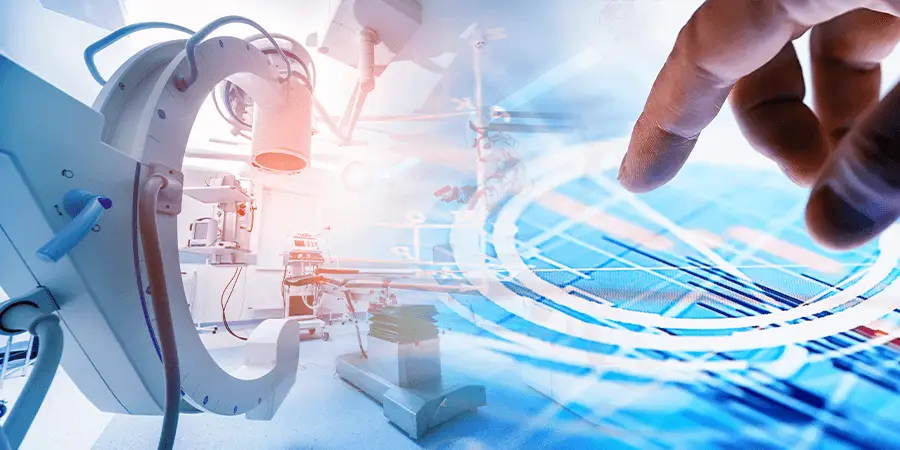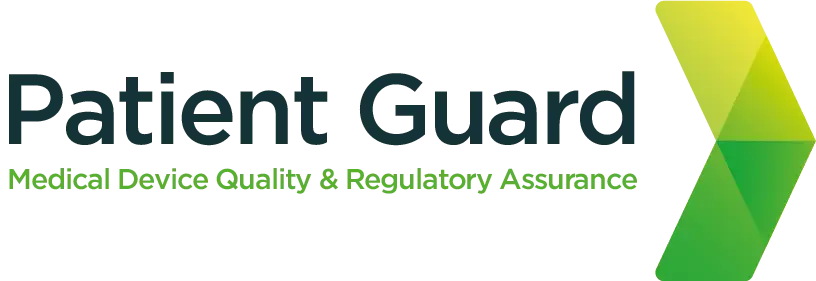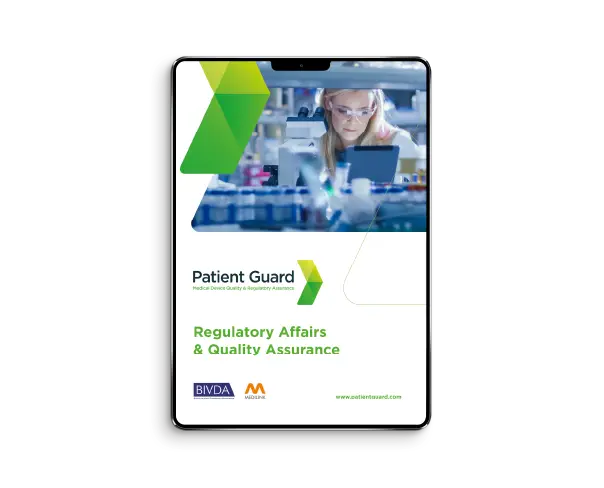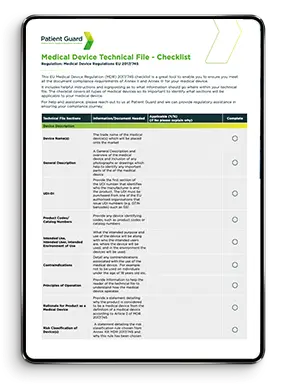Medical Device Software
Medical Device Software and artificial intelligence (AI) are not just buzzwords; AI a transformative force that is reshaping the landscape of medicine and medical technology. AI is Revolutionizing Medical Device Industry. Over the past decade, we have witnessed remarkable advancements in AI, and its impact on the medical device industry is nothing short of revolutionary. As we step into the next five years, the synergy between AI and medical devices is poised to usher in a new era of healthcare innovation, efficiency, and patient outcomes.
1. Personalized Medicine:
AI algorithms in medical device software are adept at processing vast amounts of patient data to identify patterns and predict outcomes. In the next five years, medical devices infused with AI will enable the delivery of highly personalized treatments. From wearable devices monitoring vital signs in real-time to implantable sensors adjusting drug dosages based on individual responses, personalized medicine will become the cornerstone of patient care.
2. Enhanced Diagnostics:
AI-powered medical devices are becoming increasingly sophisticated in their ability to detect diseases at early stages. Advanced imaging devices, such as MRI and CT scanners, will utilize AI algorithms to analyze images swiftly and accurately, leading to quicker and more precise diagnoses. This not only improves patient outcomes but also reduces the time and resources needed for diagnosis, making healthcare more accessible and affordable.
3. Remote Monitoring and Telemedicine:
The integration of AI into medical device software enables seamless remote monitoring of patients. Wearable devices equipped with AI can continuously monitor vital signs and send real-time data to healthcare providers. This facilitates proactive interventions, especially for patients with chronic illnesses. Additionally, AI-driven telemedicine platforms will offer more accurate virtual consultations, enhancing the reach of healthcare services to underserved areas globally.
4. Streamlined Drug Development:
In the pharmaceutical industry, AI medical device software is accelerating the drug discovery and development process. AI algorithms can analyze complex biological data to identify potential drug candidates, predict their efficacy, and optimize formulations. Medical devices equipped with AI will play a crucial role in gathering real-world data during clinical trials, leading to more efficient and reliable outcomes. This accelerated pace of drug development will bring novel treatments to patients faster than ever before.
5. Improved Surgical Procedures:
AI-powered robotic surgical systems are transforming the way surgeries are performed. These robotic assistants, guided by medical device software AI algorithms, enhance the precision and efficiency of surgical procedures. Surgeons can benefit from real-time data analysis, predictive modeling, and augmented reality interfaces, ensuring safer surgeries and quicker recovery times for patients. The integration of AI into surgical devices will continue to push the boundaries of what is possible in the operating room.
6. Enhanced Patient Experience:
AI-driven medical device software is not only enhancing medical outcomes but also improving the overall patient experience. Smart devices that can understand and respond to patients’ needs, coupled with AI chatbots providing instant medical information, create a supportive ecosystem. This compassionate use of technology fosters trust and confidence among patients, making their healthcare journey more comfortable and reassuring.

What are the Pros and Cons of AI Medical Device Software?
Pros
1. Precision and Personalization:
- AI-powered medical devices enable highly personalized treatments and therapies, optimizing outcomes based on individual patient data.
- Precision diagnostics and treatment plans lead to more effective interventions and improved patient recovery rates.
2. Early Detection and Prevention:
- AI algorithms can detect subtle patterns in data, enabling early diagnosis of diseases such as cancer and diabetes, improving chances of successful treatment.
- Predictive analytics help in identifying at-risk populations and implementing preventive measures, reducing the overall disease burden.
3. Efficiency and Cost-Effectiveness:
- Streamlined processes and automation in diagnostics and data analysis reduce time and resources, making healthcare more efficient.
- Remote monitoring and telemedicine powered by AI cut down on healthcare costs, making quality care accessible to a larger population.
4. Accelerated Research and Development:
- AI expedites drug discovery, shortening the time required to bring new medications to market, benefiting patients and pharmaceutical companies alike.
- Real-time data analysis during clinical trials enhances research accuracy, leading to the development of more effective treatments.
5. Improved Surgical Outcomes:
- Robotic surgical systems guided by AI enhance precision, reducing the margin of error in surgeries.
- AI assists surgeons in complex procedures, leading to quicker recovery times and reduced post-operative complications for patients.
6. Enhanced Patient Engagement:
- AI-driven devices improve patient experiences through interactive interfaces and personalized interactions.
- Chatbots and virtual assistants provide instant medical information, empowering patients to manage their health more effectively.
Cons
1. Data Privacy and Security Concerns:
- Storing and processing sensitive patient data raise concerns about privacy and the potential for data breaches.
- Ensuring robust cybersecurity measures is crucial to prevent unauthorized access and protect patient confidentiality.
2. Limited Human Interaction:
- Over-reliance on AI may lead to reduced human interaction in healthcare, impacting the empathetic aspect of patient care.
- The absence of a human touch might affect the emotional well-being of patients, particularly in sensitive situations.
3. Ethical Dilemmas:
- AI algorithms might inherit biases present in the training data, leading to biased decision-making in healthcare.
- Ethical dilemmas arise concerning the responsibility and accountability when AI-driven devices make critical decisions impacting patients’ lives.
4. Integration Challenges:
- Integrating AI into existing healthcare systems and workflows can be complex and costly.
- Ensuring seamless interoperability among different AI-driven devices and platforms is a challenge that healthcare providers need to address.
5. Regulatory Hurdles:
- Regulations and standards in the healthcare industry need to keep pace with AI advancements to ensure patient safety and efficacy.
- Navigating the regulatory landscape for AI-powered medical devices can be time-consuming and challenging for manufacturers.
6. Job Displacement Concerns:
- Automation of certain tasks through AI might raise concerns about job displacement in healthcare, particularly in roles that can be automated.
- Reskilling and retraining the workforce to adapt to the changing healthcare landscape become essential to address these concerns.
Summary
AI medical device software is Revolutionizing Medical Device Industry, the marriage between AI and the medical device industry holds the promise of a healthier, more connected future. Over the next five years, we can expect to see a proliferation of AI-infused devices that will redefine the standards of patient care, drive medical discoveries, and ultimately, save lives. As we embrace these advancements, it’s imperative to continue ethical considerations, data security, and patient privacy to ensure that the future we are shaping is not just technologically advanced but also ethically responsible and inclusive for all.
In navigating the future of AI in the medical device industry, addressing these challenges will be essential to maximizing the benefits of AI while minimizing its drawbacks, ensuring a healthcare future that is both technologically advanced and ethically responsible. The World Health Organisation (WHO) has started to outline the considerations for AI in Health, information on this can be found here.
How can Patient Guard help?
Patient Guard has worked with many Medical Device Software developers on projects such as health apps, NHS digital projects and AI software projects, such as AI being used to detect diabetic retinopathy in eye screening. If you are working on a medical device software project and need some regulatory guidance and support then don’t hesitate to contact us to see how we can help you successfully and smoothly deliver your project to the market.
FAQs
Medical device software includes standalone applications or software integrated into devices that perform medical functions, such as diagnosis, monitoring, or treatment. When powered by artificial intelligence (AI), these tools use algorithms and machine learning to analyze data, improve decision-making, and personalize care.
Why it matters: AI-driven medical device software is transforming healthcare by enabling faster, more accurate diagnoses and more efficient patient management.
AI-powered medical device software is regulated as a Software as a Medical Device (SaMD) under frameworks like:
- EU MDR (2017/745): Requires compliance with safety, performance, and risk management requirements.
- FDA: Regulated under 21 CFR Part 820 with specific guidance for AI and machine learning-based software.
- ISO 13485 and IEC 62304: Provide standards for software development and quality management.
Key takeaway: Manufacturers must demonstrate that their AI software is safe, reliable, and performs as intended.
AI in medical device software presents unique challenges, including:
- Data Quality: Ensuring that training datasets are representative, unbiased, and sufficient.
- Transparency: Explaining how AI algorithms make decisions (often referred to as the “black box” problem).
- Regulatory Uncertainty: Addressing evolving standards and expectations for adaptive AI systems.
- Validation: Demonstrating consistent performance in real-world settings.
Pro tip: Collaboration with regulatory experts can help navigate these challenges effectively.
IEC 62304 is the standard for medical device software development life cycle (SDLC). For AI software, it ensures:
- Structured Development: Clear processes for design, development, and testing.
- Risk Management Integration: Aligning AI system risks with ISO 14971.
- Software Validation: Ensuring AI algorithms perform as intended in both controlled and real-world conditions.
- Ongoing Maintenance: Regular updates to algorithms based on post-market data.
Key insight: Compliance with IEC 62304 builds regulatory trust and ensures patient safety.
Examples include:
- Diagnostic Tools: AI analyzing imaging scans (e.g., X-rays, MRIs) for early disease detection.
- Predictive Analytics: Algorithms forecasting patient outcomes or complications.
- Wearable Devices: AI-powered fitness trackers or health monitors providing real-time insights.
- Decision Support Systems: Tools assisting healthcare professionals in clinical decision-making.
Key takeaway: AI-powered software is versatile, addressing diverse medical needs across diagnostics, monitoring, and treatment.
Yes! Patient Guard provides expert guidance for AI-powered medical device software, including:
- Assisting with regulatory submissions for CE marking, FDA approval, and UKCA marking.
- Ensuring compliance with MDR, IVDR, and international standards like ISO 13485 and IEC 62304.
- Developing risk management plans aligned with ISO 14971 for AI systems.
- Supporting post-market surveillance and vigilance for adaptive AI software.
Why choose Patient Guard: With deep expertise in software regulations and AI compliance, we ensure your innovation meets global safety and performance standards.




